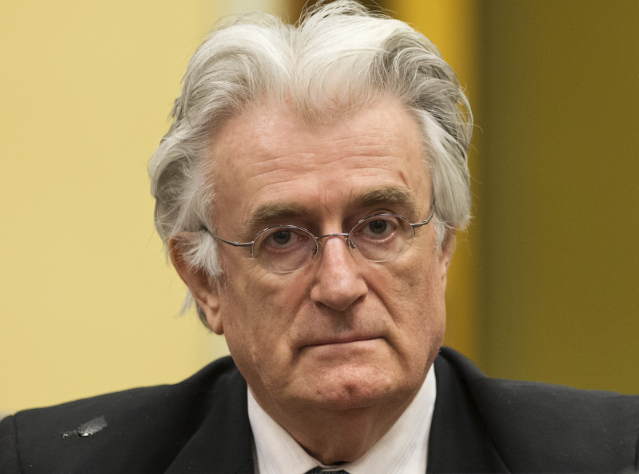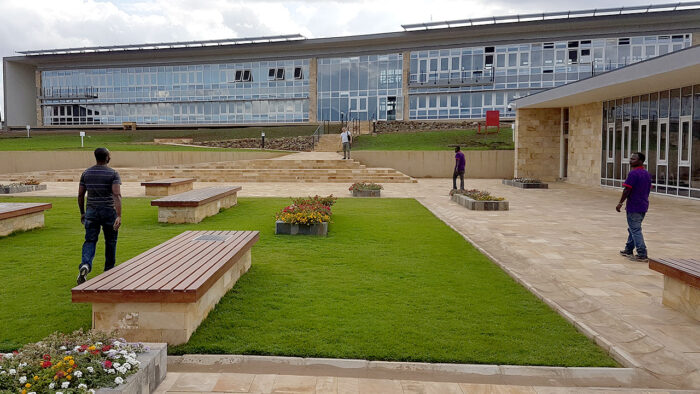
Introduction
The sentencing of Radovan Karadžić, the former Bosnian Serb leader, by the International Residual Mechanism for Criminal Tribunals (IRMCT) has been a subject of intense scrutiny and debate. Karadžić was sentenced to life imprisonment without the possibility of parole for his role in the atrocities committed during the Bosnian War, including genocide, crimes against humanity, and war crimes. This decision was upheld on appeal on 20 March 2019, despite the presence of dissenting opinions within the tribunal.
Given the European Court of Human Rights (ECHR)’s consistent rulings that life sentences without the possibility of parole (LWOP) violate Article 3 of the European Convention on Human Rights, which prohibits inhuman or degrading treatment or punishment, there is a strong case for reviewing Karadžić’s sentence in the UK courts. This opinion argues that the life sentence without parole imposed on Karadžić should be reconsidered under UK law, where ECHR rulings are binding, and that the dissenting views within the tribunal further support this review.
In Karadžić’s case, the IRMCT imposed a life sentence without any possibility of parole, a decision that stands in stark contrast to the ECHR’s jurisprudence. This disparity between international human rights law and the sentence imposed by an international tribunal calls for a critical examination within the context of UK law, which incorporates the European Convention on Human Rights through the Human Rights Act 1998.
Dissenting Opinions Within the Tribunal
The decision to impose a life sentence without parole on Karadžić was not unanimous within the tribunal. Dissenting opinions, such as those expressed by Judge José Ricardo de Prada Solaesa, highlight the problematic nature of the sentence. Judge de Prada argued that the life sentence without parole does not adequately consider the rehabilitative potential of the convicted individual and fails to align with international human rights standards, particularly those set by the ECHR.
The dissenting opinions emphasized that the tribunal should have considered the possibility of a determinate sentence or at least included a provision for parole review. The absence of such considerations suggests that the tribunal’s decision may have been influenced by factors beyond legal principles, such as the gravity of the crimes, leading to a sentence that arguably prioritizes retribution over justice.
The Role of the UK Courts in Reviewing International Sentences
The UK courts, under the Human Rights Act 1998, have a duty to ensure that any legal proceedings or sentences, including those of an international nature, comply with the ECHR. While the IRMCT operates under the aegis of the United Nations and is not directly bound by the ECHR, the UK’s obligation to uphold human rights extends to ensuring that sentences enforced within its jurisdiction, or affecting individuals within its legal sphere, comply with the Convention especially as Radovan Karadzic is contained within the UK Prison system.
Given the ECHR’s clear stance on life sentences without parole, there is a compelling argument that the UK courts should review the Karadžić sentence. This review would assess whether the imposition of a life sentence without the possibility of parole on Karadžić violates Article 3 and, if so, what remedies might be available under UK law.
The Importance of Rehabilitation and Hope
One of the fundamental principles of modern penal systems is the potential for rehabilitation. The ECHR’s jurisprudence reflects this, recognizing that even those convicted of the most heinous crimes should not be denied the possibility of reform and eventual reintegration into society. A life sentence without the possibility of parole effectively extinguishes any hope of rehabilitation, which the ECHR has consistently found to be incompatible with the principles of human dignity and the right to humane treatment.
In Karadžić’s case, the nature of his crimes is undeniably grave. However, the principle that all individuals, regardless of their crimes, should retain the right to hope for release is a cornerstone of human rights law. The UK courts, in reviewing the sentence, should consider whether the total denial of this possibility aligns with the values enshrined in the European Convention on Human Rights.
Conclusion
The life sentence without parole imposed on Radovan Karadžić by the IRMCT presents a significant legal and ethical dilemma. While the severity of Karadžić’s crimes cannot be understated, the sentence’s compatibility with international human rights law, particularly as interpreted by the ECHR, is questionable. The dissenting opinions within the tribunal, coupled with the ECHR’s established jurisprudence, strongly support the argument for a review of Karadžić’s sentence in the UK courts.
This review should consider whether the sentence violates Article 3 of the European Convention on Human Rights and whether it aligns with the UK’s obligations under the Human Rights Act 1998. Ultimately, the principle that even the most serious offenders should not be deprived of hope must be upheld, ensuring that justice is administered in a manner consistent with human rights standards.
GIOVANNI DI STEFANO
www.studiolegaleinternazionale.online
gds@studiolegaleinternazionale.online
21 August 2024



